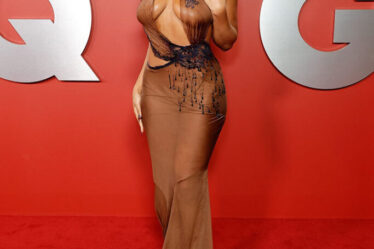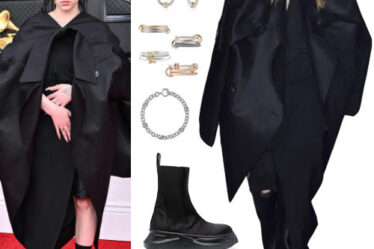
Cosmetic injectables were once middle-aged accessories. Patients reached for them when a brow remained furrowed after a bad mood had passed, or their reflection started resembling their parent’s too much. But by the 2010s, the market had shifted. People in their 20s and 30s started seeking out Botox and fillers.
Now, the most recent global survey from the International Society of Aesthetic Plastic Surgery has found that more than two-thirds of Botox users globally were 50 and under, and 24% were aged 18 to 34. The survey also found that non-surgical cosmetic procedures performed by plastic surgeons had increased by 57.8% from 2018 to 2022.
Spending on these kinds of cosmetic procedures topped $1bn in Australia for the first time last year, and the industry is in the midst of a regulatory overhaul due to concerns over standards and safety. As increasing numbers of young people turn towards “tweakments”, a cohort of early adopters is now approaching middle-age.
So, what does getting older look like when you grew up with the promise of never having to look your age? We asked five people who have been getting cosmetic injectables for most of their adult lives to reflect on getting older – with or without wrinkles.
Allison Lemon, 34: ‘I want to allow myself to age’
Hairdresser and artist who started anti-wrinkle injections at 23
When I was 21 I was working in a nice salon and there was a girl who was only a year older than me, but she was already getting anti-wrinkle injections. She just looked so flawless all the time, I think I wanted to emulate her.
By the time I was 23 I was trading hair services with an esthetician to get Botox. That’s how I could afford it. I didn’t have any wrinkles but when I put on makeup my skin felt like glass. As the years went on, I wanted more and more.
I haven’t really taken a break since I started, but I’ve gone through waves of how much I have. The closest I’ve come to stopping was last year when I didn’t do it for seven or eight months for financial reasons. It was surprising how rapidly my face changed. The speed of the ageing process made me nervous.
Interestingly, my mum got Botox for the first time in her 50s and it was bizarre how different her face looked. It was really stark. Whereas with me, starting so young, it feels like I still recognise myself.
Botox used to be about controlling my image and being like someone else, but I’ve decided I want to allow myself to age and see that change happening.
Sally*, 40: ‘Women around me are doing the most … men just get to age’
An arts worker who has been getting filler and anti-wrinkle injections since she was 28
My mum got a nose job at 40. I was a teenager, and while it was empowering for her I can’t help but feel it had some influence on me. When I first started with injectables, I didn’t see them as being any more invasive than lipstick or concealer. I was very laissez-faire about it. It also felt like a form of body autonomy – I liked that you could change your face like you’d change your hair colour.
But since turning 40, I’ve been thinking about it a lot. I still get injectables and do believe you can be a feminist with a face full of work. But increasingly I’ve been noticing that all the women around me are doing the most and the men just get to age. There’s a feeling of injustice in the situation.
You start to wonder, is it really a choice? Yes I enjoy them, but the truth is you have to look a certain way to keep getting opportunities. There’s that joke where a man asks a woman what her hobbies are and she says: “Look at me. This is my hobby.”
James Vivian, 40: ‘Honestly I don’t see why I would stop’
A dermal clinician who started getting anti-wrinkle injections at 25
I started getting anti-wrinkle injections when I was 25 because I was waking up in the morning and my forehead looked like I had been frowning all night. It felt like there was a disconnect between how I felt and looked. Now I see them as part of an “ageing well” journey that extends far beyond the skin. It’s about living as long as I can healthily and happily.
after newsletter promotion
These days I only really think about this stuff when someone is surprised by how old I am. I’m always very open: I tell them I don’t go in the sun, I don’t drink, I see a personal trainer, I look after my skin and I get Botox.
There’s a misconception around anti-wrinkle injections that once you start you have to do it forever. That’s not true. You continue because you like how it looks and feels. Like anything, I’ll continue until I don’t feel the need anymore. But honestly I don’t see why I would stop. If anything I’ll probably need more the older I get.
I don’t want the things I’m doing now to become gateways for other procedures down the track. I’m doing the best I can now to not be a candidate for surgery later. I hope my vanity never extends that far.
Erin Deering, 39: ‘I had an identity crisis and injectables became a bit of an obsession’
Entrepreneur and author who started getting injectables at 33
The first thing I did was a little bit of Botox and a little bit of filler in 2018. I was living overseas for work when I decided to try it. I remember sitting in the waiting room with people who looked really extreme and thinking: I don’t know if I want to go down this slippery slope.
That experience didn’t really kick off anything crazy. But then I moved back to Australia with my children and it was a chaotic time. I didn’t know who I was. I had an identity crisis and injectables became a bit of an obsession. I was going every month to a doctor who was a big over-treater. We did a lot of stuff. I think I was just trying to get a new face, trying to feel different, like a new person. Looking back, I realise my lack of self worth, self-awareness and identity at the time allowed it to become a huge part of my life.
Then I had two pregnancies, the pandemic hit, and I entered an extended period where there were no treatments. During that time I also started doing a lot of emotional healing work. I looked at all the things I was doing and asked: How do I want to show up in the world?
I didn’t stop all together. After my pregnancies I started to go back to do little things, a line here or there. But my relationship with injectables is always evolving. Sometimes I feel the desire is shifting, but the habit and programming of getting these things done is still there. I’m kind of like: Which way do I go? Do I want to stand for something? Do I want to be a role model for ageing naturally? Do I care?
Honestly I don’t know where I sit. I’m having less done and I feel more like myself. I turn 40 this year and I’m really excited about getting older. But then I’m like, how much of that is dependent on looking a certain way?
Felicity West, 39: ‘Coming into my 40s it’s appropriate to have a few fine lines’
A cosmetic nurse who started getting cosmetic injectables at 30
I first started getting injectables when I was working at a cosmetic clinic. Obviously considering I went on to start my own practice, I was pretty fond of the results. When I look at people my age who haven’t had treatments, I do feel my skin is in better condition.
I’ll probably never stop, but I do try to make sure my treatments are age-appropriate. For example, in your 20s and 30s, it’s age-appropriate to have no wrinkles. But coming into my 40s and then 50s, it’s appropriate to have a few. To get a sense of that, I look at people around me, and unfortunately celebrities and Instagram do have an impact on that perception.
It’s kind of weird being able to choose what “appropriate” is rather than just letting nature take its course. I understand ageing is inevitable, but all I’m trying to do is look the best for my age. It’s satisfying to have this control.
*Name has been changed
Interviews have been edited for structure and length



